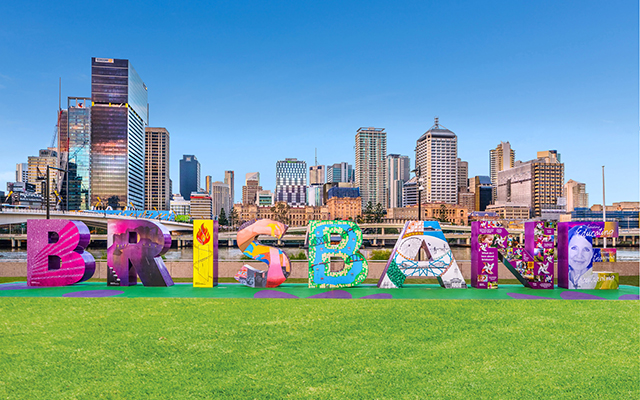The pandemic has presented hoteliers a valuable opportunity to re-evaluate their sales and marketing efforts and strengthen their online presence, opines Sojern’s APAC general manager, Lina Ang

The Covid-19 pandemic has presented new and unusual business challenges for hotels. How have hotels’ approach to sales and marketing changed as a result?
With the global impact of Covid-19 on travel evolving from week to week, and market-to-market recovery being hard to predict, we conducted a survey with 500-plus hoteliers worldwide at the end of May (to understand the state of hotel marketing). Findings indicated that they are aligned on key post-Covid recovery marketing strategies.
Some key findings included:
● 42% of respondents believe we can expect to see signs of recovery in 4-6 months
● 54% are looking to government easing lockdown restrictions as an indication of recovery
● 39% will have a very small budget for marketing when recovery begins, so (spend) will be lower than pre-Covid
● 50% will keep the same marketing mix (while) 39% will be focusing on tactics that promote more direct bookings, away from OTAs
We don’t recommend that hoteliers go dark right now, as they should be focused on generating brand awareness, honing in on the local and drive markets, and (creating) advanced booking offers. Pay-for-performance models are an excellent way to achieve this without (straining) a small budget or (when there is) no budget at all.
Consumers trapped at home are spending more time online, working, learning, shopping and seeking connections. What should hoteliers do to engage these consumers online positively?
Hoteliers spending this time to upgrade their website and booking engine is key. Having a Covid-19 information page will also be key to garnering confidence among consumers to book with that specific hotel.
Now, more than ever, travellers want a flexible cancellation policy. Hoteliers are (doing that, enabling their guests) to book now and stay before the end of 2021. For example, Marriott has extended loyalty status to February 2022, and paused all points expiration to February 2021. Additionally, Marriott is making it easy for their customers to get involved in giving back, thus building brand loyalty; they can use their Bonvoy points to donate to The World Central Kitchen, UNICEF, Red Cross, (or desired) disaster relief fund.
What critical considerations should hotels take in planning their current sales and marketing strategy?
What we are seeing as part of current strategies, especially for chain hotels, is that they are offering competitive pricing and flexibility with stay dates. This has resulted in independent hotels holding off introducing offers due to the low lead in room rates.
In terms of future marketing strategies, hoteliers need to be cautious about group bookings – crowded hotels (during the) pandemic will not send a positive message and perhaps even create consumer distrust of that hotel.
When we ease out of Covid-19, hotels should focus on messaging that will give their customers and travellers peace of mind to stay with them and feel confident in their brand. Cleaning, disinfecting, social distancing, meal service protocols, and other standard operating procedures will be at the forefront for a long time.
Other recommendations I have for recovery are:
● Look for early signs of recovery, starting with the number of active cases and death rates. When numbers of new active cases and death rates plateau, it is likely that lockdown restrictions will be eased and social distancing measures will be lifted. Pay attention to government-issued travel policies obtained from reliable sources. Another sign to look out for is airlines ramping up to reinstate suspended flights.
● Promote a flexible reservation policy that is customer sensitive, and be mindful that the approach you take now will be remembered in the future. Consider incentivising postponed bookings and having a flexible cancellation policy.
● Use this time to optimise your website. Make it easy to navigate and book; provide updated and accurate information; use desirable images to convey the brand’s offering; and improve the speed of your webpages which will affect your ranking on Google search results page. It’s important to note that travellers using mobile to search are much more likely to leave a page if it takes longer than three seconds to load.
● Set up a Covid-19 information page to highlight the measures you are taking to ensure the well-being of your customers, staff and local community. Share how the team is trained to respond swiftly to anyone showing Covid-19 symptoms on property, including your process to notify medical authorities. If your country has a national health and hygiene audit initiative, call it out on this webpage.
How about their future sales and marketing strategy?
Globally, more and more people are isolated indoors. With that, many have turned online and are dreaming about and planning their next trip. Because online traffic is exponentially higher these days, it is important to maintain upper to mid-funnel marketing and brand awareness activities. We have seen a spike in travel bookings for late-2020 and early-2021, suggesting that travel will pick up (then), with a domestic focus first, then regional and finally, international.
Here are some digital advertising tips to keeping your potential customers engaged and ready to book with you as soon as they are able: choose your audience; get ahead of the staycation trend; select optimal marketing channels such as Display, Facebook, Instagram, search engine marketing, video and metasearch, and ideally, run them with a single vendor in order to avoid attribution/overlap issues; make sure your messages match the tone of your current audience’s circumstances; and use remarketing to advertise to the people who had come to your site, checked you out and then continued on their day.
Other recommendations I have are:
• Inspire dreamers on social media by continuing to showcase your business to keep future customers engaged
• Use metasearch to get in front of travel planners, starting with sites like Google Hotel Ads, TripAdvisor, Kayak, Trivago, and Skyscanner where approximately three-quarters of travellers will be browsing to plan their future travel
• Improve your SEO (Search Engine Optimisation) strategy to get your business in top search results organically without paying for advertising. The content you put on your website determines your SEO ranking, so, during this crisis, use certain key phrases often and meaningfully throughout your website to float your site to the top of the Search Engine Results Page
• Reevaluate your rate parity and OTA strategy. When businesses are able to convince that their brand presents the best value, it encourages guests to book directly with them, thus developing trust
• Consider a co-op, especially if you don’t have the funds. Reach out to your local NTO or government destination partner for an advertising co-op possibility.
The big hotel chains clearly have all the sales and marketing guns they need to go forward in the digital world. What about the smaller local chains or independent properties that want to be competitive but may not know how to proceed? How can they get started?
Gone are the days when it cost an arm and a leg to own a website. Nowadays, there are affordable website developers and marketing partners (to be found).
At Sojern, we support independent hotels with our Pay On The Stay model, where a hotel pays a commission for the booking we have driven and (use our) tools such as The Hotels Network’s offering to… drive direct bookings.
The absolute bare minimum a local chain or independent property can do is have a well informed property website.
How is Sojern helping?
We’ve been talking with our customers across the world and travel verticals, and (many say they are) using this time to think about their current partnerships, relationships, and industry, and to see how they can use this time to re-evaluate some things.
There is so much changing every week that you need to be flexible, soak up as many great ideas and strategies from each other and from other verticals within travel, and let data guide your decision-making as much as possible.
We understand that tracking the ever-changing travel trends is more important now than ever. To help arm hoteliers and travel marketers (with timely information), we’ve released a real-time insights dashboard that provides the latest travel trends. Additionally, we have a webinar series where industry experts share how they are tackling Covid-19.
















